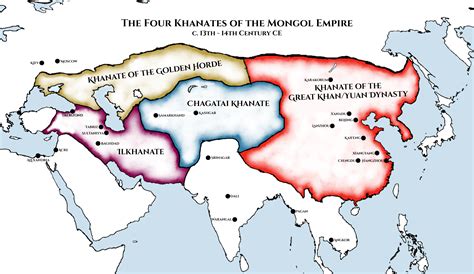Spanning vast territories and leaving an enduring mark on world history, the Mongol and Mali Empires stand out as two of the most remarkable civilizations in human history. Despite their geographical distance and distinct cultural backgrounds, these empires shared a remarkable similarity that played a crucial role in their success and legacy.

Meritocratic Leadership: A Cornerstone of Success
At the heart of both the Mongol and Mali Empires lay a common thread: meritocratic leadership. In contrast to hereditary succession systems prevalent in many societies, these empires recognized and rewarded individuals based on their abilities and achievements rather than lineage or social status.
In the Mongol Empire, Genghis Khan established a meritocratic system that promoted military prowess and administrative competence. Skilled warriors and capable administrators rose through the ranks, regardless of their tribal affiliations or social standing. This meritocracy fostered a culture of loyalty and effectiveness, enabling the Mongols to conquer and govern vast territories.
Similarly, the Mali Empire under Mansa Musa embraced meritocracy. The emperor himself was renowned for his intelligence and leadership qualities, and he sought out talented individuals from all walks of life to serve in his administration. The empire’s decentralized governance structure allowed for local leaders to emerge based on their abilities and contributions to their communities.
Benefits of Meritocratic Leadership
The meritocratic leadership models adopted by the Mongol and Mali Empires brought numerous benefits that contributed to their success:
- Attracting and Retaining Talent: Meritocracy created a system where individuals with the necessary skills and abilities were identified and promoted, leading to a highly skilled workforce.
- Enhancing Motivation and Loyalty: By rewarding individuals based on their performance, meritocratic systems fostered a sense of motivation and loyalty among the population. Skilled individuals were eager to serve the empire, knowing that their efforts would be recognized and rewarded.
- Promoting Innovation and Adaptability: Meritocratic societies were more open to new ideas and approaches, as individuals from diverse backgrounds and experiences were given the opportunity to contribute to the empire’s development.
- Ensuring Stability and Succession: By promoting capable individuals to positions of leadership, the Mongol and Mali Empires reduced the risk of internal power struggles and ensured a smooth transition of power.
Table 1: Examples of Meritocratic Leadership in the Mongol and Mali Empires
| Empire | Notable Meritocratic Leaders |
|---|---|
| Mongol Empire | Genghis Khan, Subutai, Jebe |
| Mali Empire | Mansa Musa, Kankou Moussa, Askia Muhammad Toure |
Tips for Implementing Meritocracy in Modern Organizations
The principles of meritocracy remain relevant in modern organizations seeking to achieve success and sustainability. Consider the following tips:
- Establish Clear and Objective Criteria: Define the skills and qualities required for different positions and assess candidates based on their performance against these criteria.
- Create a Transparent and Fair Process: Ensure that all candidates have equal opportunities to demonstrate their abilities and that the evaluation process is free from bias.
- Provide Feedback and Support: Offer regular feedback to employees on their performance and provide opportunities for professional development to enhance their skills.
- Reward and Recognize Achievement: Acknowledge and reward employees who consistently exceed expectations and contribute to the organization’s success.
Common Mistakes to Avoid in Implementing Meritocracy
Avoid these common pitfalls when implementing a meritocratic system:
- Lack of Clarity: Failing to define clear criteria for advancement can lead to subjectivity and favoritism.
- Bias and Discrimination: Meritocracy must be implemented fairly and without bias based on factors such as gender, race, or background.
- Short-Term Focus: Emphasizing short-term results over long-term development can hinder the identification and promotion of truly capable individuals.
- Lack of Accountability: Without proper accountability, meritocracy can become a flawed system where individuals are not held responsible for their performance.
Conclusion
The Mongol and Mali Empires demonstrated the transformative power of meritocratic leadership. By recognizing and promoting individuals based on their abilities and achievements, these empires created highly skilled workforces, fostered innovation and adaptability, and ensured a smooth transition of power. In today’s rapidly changing world, organizations seeking success can draw inspiration from the principles of meritocracy to create a fair and effective system that empowers the most capable individuals to lead and drive innovation.
